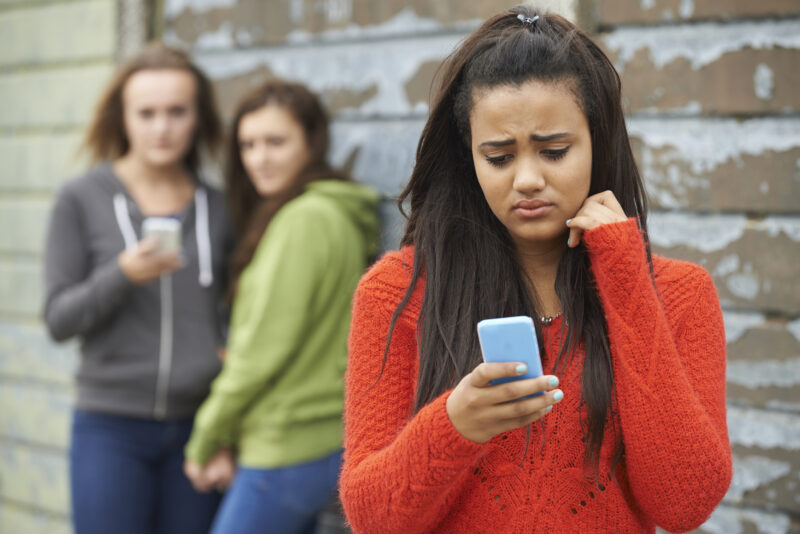 Child and adolescent psychiatrist Dr. Sumru Bilge-Johnson has seen firsthand the effects of cyberbullying, and she has a message for parents: “Get involved. You really need to know what your kids are doing online.”
Child and adolescent psychiatrist Dr. Sumru Bilge-Johnson has seen firsthand the effects of cyberbullying, and she has a message for parents: “Get involved. You really need to know what your kids are doing online.”
Dr. Bilge-Johnson found that bullying contributed to clinical depression, suicidal thoughts and attempts, in some cases, in teenage patients at Akron Children’s. The results of her research were published in a study in 2013.
Today, news reports of cyberbullying pushing teens to suicide continue to be numerous. But the relationship between victimization and suicide is complex, and there often are other factors at play.
Still, it’s clear that kids who are bullied, as well as bullies themselves, are at higher risk for suicide.
“In recent years, I’m seeing more cyberbullying because every kid is on social media,” Dr. Bilge-Johnson said. “That’s worse in a way than the bully at school because with cyberbullying, there is no break. They are online all the time.”
Signs of cyberbullying
Kids experiencing cyberbullying typically give off signs of despondency. Dr. Bilge-Johnson said to look for changes in behavior and mood, including:
- Not eating or sleeping well
- Tearfulness
- Sadness and irritability
- Suddenly not wanting to go to school
- Increased isolation
- Withdrawing from normal fun activities they once enjoyed

Keep an open dialogue about what your teens are doing online to make it easier for them to speak up if something bad happens.
If your child is being bullied, isolation may only make things worse. Instead, teens feeling the brunt of a bully should be supported to continue normal activities and stay connected to friends and family while actions to stop bullying continue, she said.
“When kids are being bullied, they may feel it’s their fault, they may feel embarrassed, or even start to believe in what is said about them. And instead of reaching out, they withdraw,” said Dr. Bilge-Johnson. “Sometimes kids get so locked up, they don’t talk. They don’t tell, until they come to us.”
So what can a parent do about cyberbullying?
- Educate teens about cyberbullying. Talk to teens and make sure they know what cyberbullying is and how to recognize inappropriate behavior.
- Keep a record of cyberbullying. If kids think they are being harassed or targeted, they should not delete the messages, but instead show them to a parent. Parents should print out the messages and contact police and the school for help (the only exception for printing is if there are nude photos).
- Tell your teen to not respond to a cyberbully. Many times, engaging with the cyberbully only adds fuel to the fire. A cyberbully is looking for a reaction, so the issue is more likely to resolve if there’s no response.
- Educate kids about appropriate online conduct and set clear rules. Reinforce that nothing done online is temporary, and content can be saved and later used against your teen. Set maximum time limits for internet use, enforce the rule no phones after bedtime and be sure to monitor your teen’s online activities.
- Above all, make communication a priority. Have regular family time to talk about the ups and downs of the day and keep an open dialogue about what teens are doing online. When regular communication is lacking, it becomes that much harder for kids to speak up when something bad happens.
When should you seek professional help?
It’s not easy to know when to seek professional help. But if your teen shows continued changes in behavior and signs of depression with no resolution in sight, Dr. Bilge-Johnson recommends seeking mental health care.
“This is a very big problem for our kids and it shouldn’t be handled alone,” she said. “As a community, we have to help them with every resource we have: parents, friends, mental health experts, schools and police.”
Need more tips? Dr. Bilge-Johnson recommends Stopbullying.gov.
If you think your child is struggling significantly due to social media, Akron Children’s Lois and John Orr Family Behavioral Health Center is offering mental health services via telehealth. Call 330-543-5015 to schedule an appointment.










